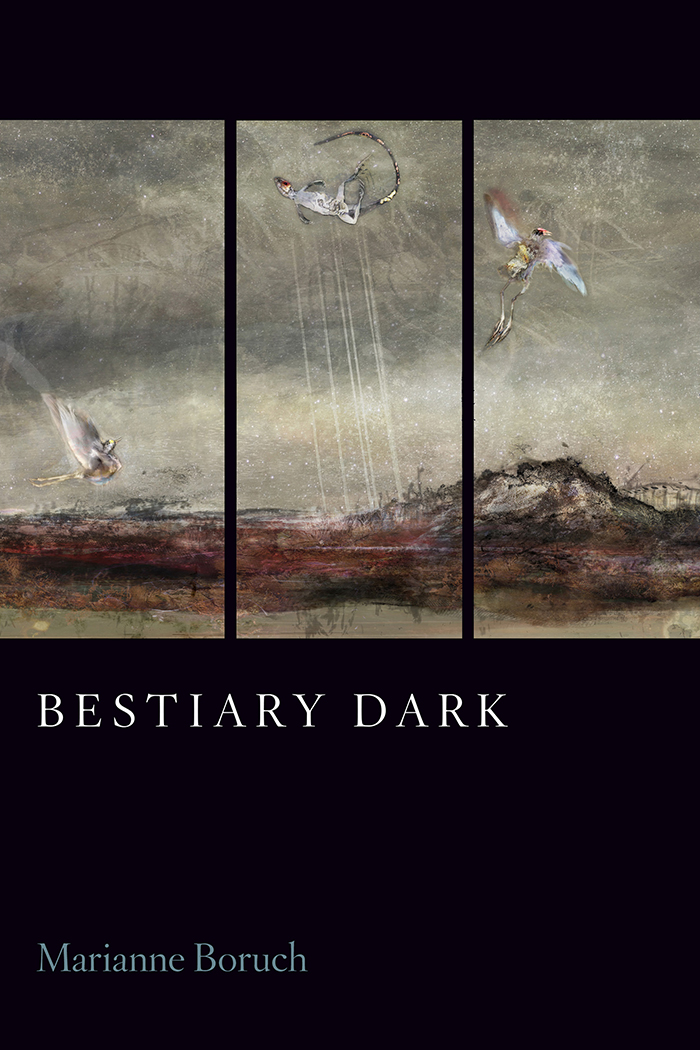
Is the world finite? Through place and time and the great expanse of Australia, Marianne Boruch ponders this, aided not just by wallabies and platypus, kangaroos and wombats, but by a cheeky Archangel who wanders in and out of her poems. The pertinent wisdom of an Indigenous Elder is here too, along with the continuing presence of Pliny the Elder, the Roman naturalist and historian who in 77 CE posed the question Boruch considers. Written following Boruch’s Fulbright in Australia, and on the heels of the devastating fires that began after her departure, Bestiary Dark is filled with strange and sweet details, beauty, and impending doom―the drought, fires, and floods that have grown unspeakable in scale. These poems face the ancient, unsettling relationship of humans and the natural world―the looming effect we’ve wrought on wildlife―and what solace and repair our learning even a little might mean.
ISBN: 9781556596377
Format: Paperback
Reviews
“Written with unabashed awe… Boruch keeps her touch light and self-deprecating as the world that the poems describe disappears, or has already been destroyed by the bush fires…shortly after her time there. … But she believes that to ‘recollect is to rescue,/ to invite back the plain astonishments.’ These poems offer delights and fascinations at every turn.” —Publishers Weekly, starred review
“She sees and considers with intensity. Her poems often give fresh examples of how rare and thrilling it can be to notice.” —Washington Post
“Boruch displays a quietly gymnastic intellect in the examinations of art, the body, and the human condition.” —American Poets
“The bestiary is an unusual work, tasked with the prospect of a never-ending compilation, limited as all texts are. In Boruch’s hands, it becomes a bridge through time; as readers, we are made to consider Pliny’s death in Pompeii while Boruch recalls the burning landscape she has barely escaped. Mortality plagues this text—why, then, revive the bestiary? A simple answer: There must be a witness to the entries ripped from its pages, seemingly every day.” —The Rumpus
“Marianne Boruch’s eleventh collection draws on observation and questions gathered during her time as a Fulbright Scholar at the University of Canberra in 2019. It also takes inspiration from Pliny the Elder’s Natural History, a compendium of scientific and social-scientific knowledge first published in AD 77. Boruch ties these two threads together with an inventive touch and a sarcastic yet wondrous tone. The result is a wide-ranging exploration of the interplay between human desires and the natural world.” —Poetry Wales
Awards
Fulbright Senior Research Lecturership, University of Canberra, Australia, 2019
